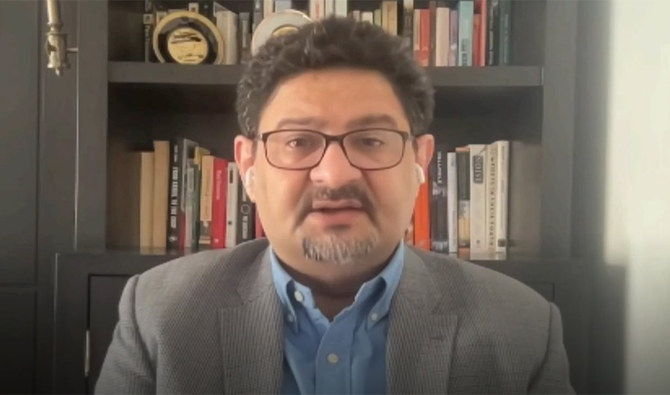ISLAMABAD: Pakistani finance minister Miftah Ismail said on Tuesday “serious worries” that Pakistan would end up like Sri Lanka, grappling with its worst economic crisis in decades, had been averted due to “significant” policy changes and austerity measures.
The high price of energy imports have recently pushed Pakistan to the brink of a balance of payments crisis. Its foreign currency reserves had fallen as low as $9.8 billion, hardly enough for five weeks of imports, and the Pakistani rupee had weakened to record lows against the US dollar this year.
But the Pakistani economy got a new lease of life when the International Monetary Fund (IMF) said last month it had reached a staff-level agreement with Pakistan that would pave the way for the disbursement of $1.17 billion of a stall $6 billion loan program, if approved by the IMF board.
Meanwhile, Sri Lanka is caught in its worst financial crisis in more than 70 years as a shortage of foreign exchange has left it struggling to pay for essential imports of food, medicine and, critically, fuel. The economic mismanagement meltdown sparked months of mass protests and eventually forced then president Gotabaya Rajapaksa to flee the country.
“There were serious worries about Pakistan heading Sri Lanka’s way, Pakistan getting into a default-like situation but thankfully we have made some significant changes, we’ve brought in significant austerity, belt-tightening and I think we have averted that situation,” Ismail said in an interview with CNBC.
He said the country was in an IMF program now and board approval was expected later this month. Without the IMF deal, which should open up other avenues for external finance, Ismail has previously said the country could have headed toward default.
The government had also raised taxes, removed unfunded subsidies on the oil and power sectors and reduced imports in recent weeks, the minister added, to help push the country out of economic difficulty.
The measures also, however, increased inflation, with Pakistan’s consumer price index (CPI) rising 21.3 percent in June from a year earlier, the South Asian nation’s highest inflation in 13 years. In May, the CPI was up 13.8 percent on the year.
But Ismail insisted Pakistan was now “headed in the right direction,” blaming rising inflation on a “challenging environment internationally,” especially the rise in the prices of oil, edible oil and commodities globally.
“In the last week, our currency actually has come back about seven percent or so against the US dollar,” the minister said. “If we had gone the Sri Lankan way it would have been much worse.”
Last month, Ismail said Pakistan was likely to get $4 billion from friendly countries to bridge a gap in foreign reserves highlighted by the International Monetary Fund.
“As per the IMF, there is a $4 billion gap,” Ismail told a news conference in Islamabad, referring to the shortfall in foreign reserves.
“We will, God willing, fill this gap in the month of July,” he said. “We think that we will get $1.2 billion in deferred oil payment from a friendly country. We think that a foreign country will invest between $1.5 to $2 billion in stocks on a G2G (government-to-government) basis, and another friendly country will perhaps give us gas on deferred payment and another friendly country will make some deposits.”















